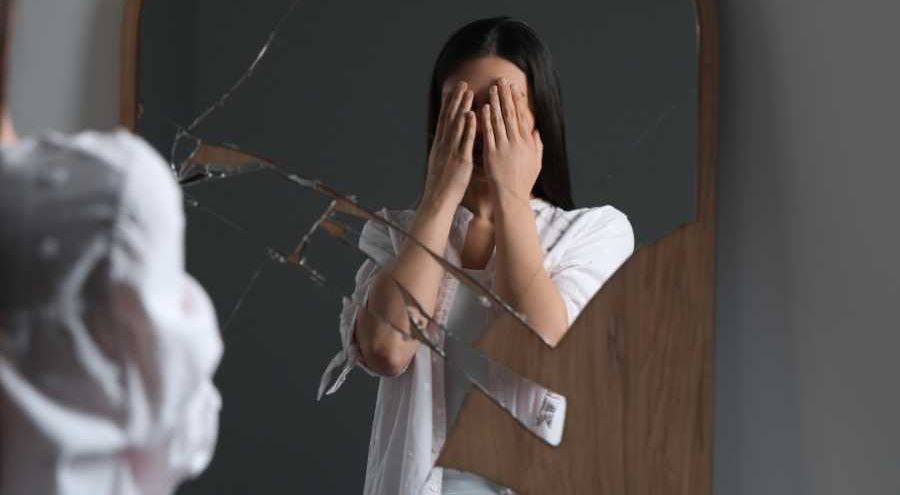Woman summarizes 4 years of therapy in a 1-minute video and it's actually really helpful
We can all use these nuggets of wisdom.
Therapy gives people lots of mental tools.
In recent decades, the stigma around going to therapy has plummeted as people recognize the widespread need for mental health help. In fact, for the first time, more Americans are relying on treatment to meet that need than on medication, with around 22 million Americans engaging in talk therapy to work through their struggles, NPR reports.
One of the benefits of therapy is the range of tools you receive for managing your thoughts and feelings, as well as reframing how you interact with them. Many of these tools are accessible to everyone. While there's no substitute for actual therapy, as it may require specific strategies and work to unpack how best to implement those tools in a person's individual circumstances, there are many valuable nuggets of wisdom that people glean from therapy, which are helpful for everyone. And thanks to one woman summarizing what she describes as four years of therapy in one minute, we have a bunch of those nuggets all in one place.
Kathryn of @energygrowthhub's video has nearly 19 million views, and when you see the list of what she shares, it's not hard to see why:
– "You really do become what you think. If you fill your mind with trash, you're going to feel like trash."
– "Emotions—they're not problems, they're signals. Fear shows you what really matters. Anger tells you what boundaries have been crossed. Anxiety means that you're stuck in the future, and it's a reminder that you need to come back to the present."
– "Motivation won't change your life, habits will. When you change your habits, everything shifts."
– "Your past? That is a chapter, not your whole story. Learn from it, but stop living there."
– "When someone triggers you, pause. Because that's a mirror showing you what's still unhealed inside of you."

– "Control—total illusion. The only real power that you have in this is you and your choices."
– "At the end of the day, it's simple: Your thoughts shape you, your habits build you, and your choices define you."
People were grateful for the clear, concise summary, which addressed so many aspects that resonated with them. Some therapists even chimed in with support, and many said that they wanted to review it over and over:
"And as a therapist, all of this is so true."
"As a therapist for 25 years, yes."
"Wait, slow down, let me write this down. ✍🏽"
"Wait, hold on, I’m making this my alarm clock."
"Probably the most valuable TikTok I’ve ever watched."
"I feel like I owe this lady some money for the therapy session for all the information. I appreciate it."
"I have been watching this on repeat. Too much good stuff in here. Phew."
As an overview, this one-minute synopsis is on point. However, you can delve much deeper into each of the points she shares.

For instance, on the "You are what you think" front, Lisa Ferentz LCSW-C, DAPA writes in Psychology Today, "As a therapist, I’ve tried to teach clients that their thoughts profoundly impact their moods and shifting emotions, their behavioral choices, their self-confidence, the healthy risks that do or don't get taken, and their feelings of self-worth and self-esteem in all arenas of life. Countless common thoughts can have a negative and lasting impact."
Another tidbit from the video that struck many people was the "Anxiety means that you're stuck in the future" statement. While that's not a complete picture of anxiety, a lot of anxiety is indeed a fear of what might happen in the future. "Some of us even hold a sense that anxiety protects us from the future, often through the misguided belief that if we worry about them, our worst fears won’t happen," Lisa Firestone, Ph.D., shares with Psychology Today. In our effort to control the uncontrollable or be certain about uncertainty, we rehearse tragedy and tell ourselves scary stories, but to what effect? When we get too far ahead of ourselves, we drive ourselves crazy. We aren’t living in the moment or experiencing our actual present circumstances."
All of these therapy gems have many layers, and, of course, people should actually undergo the therapy they need to make the most effective use of them. However, they are still helpful reminders for all of us that our mental states are not set in stone. And putting them into such digestible one-liners allows us to easily keep them in our toolbelt to pull out any time we need them.
